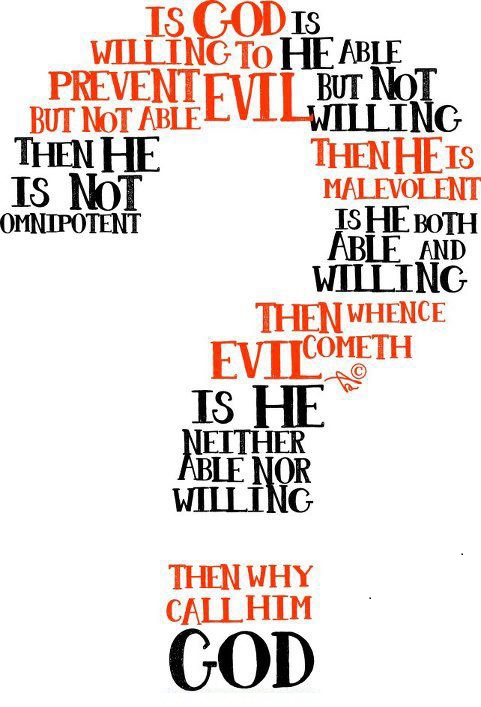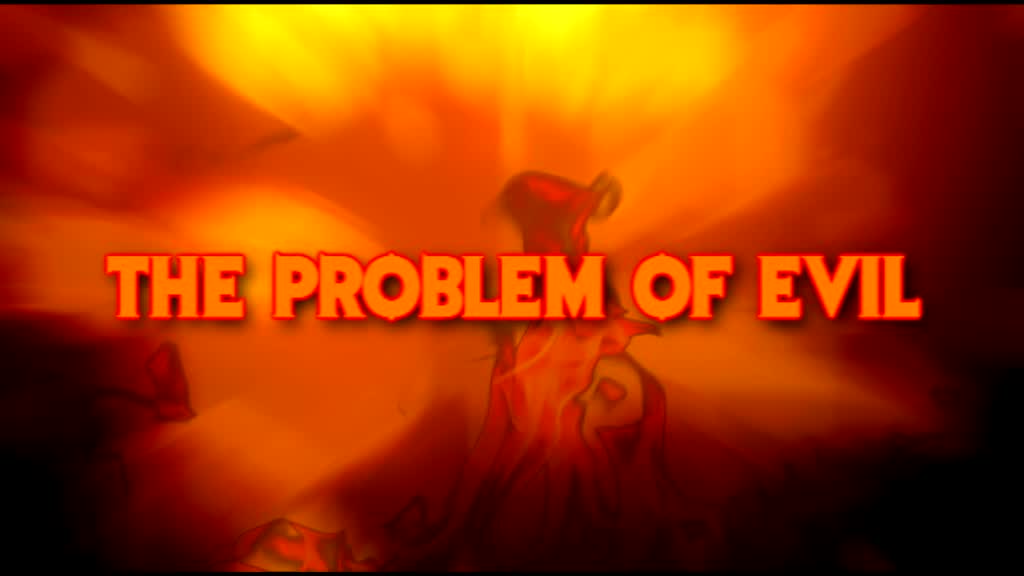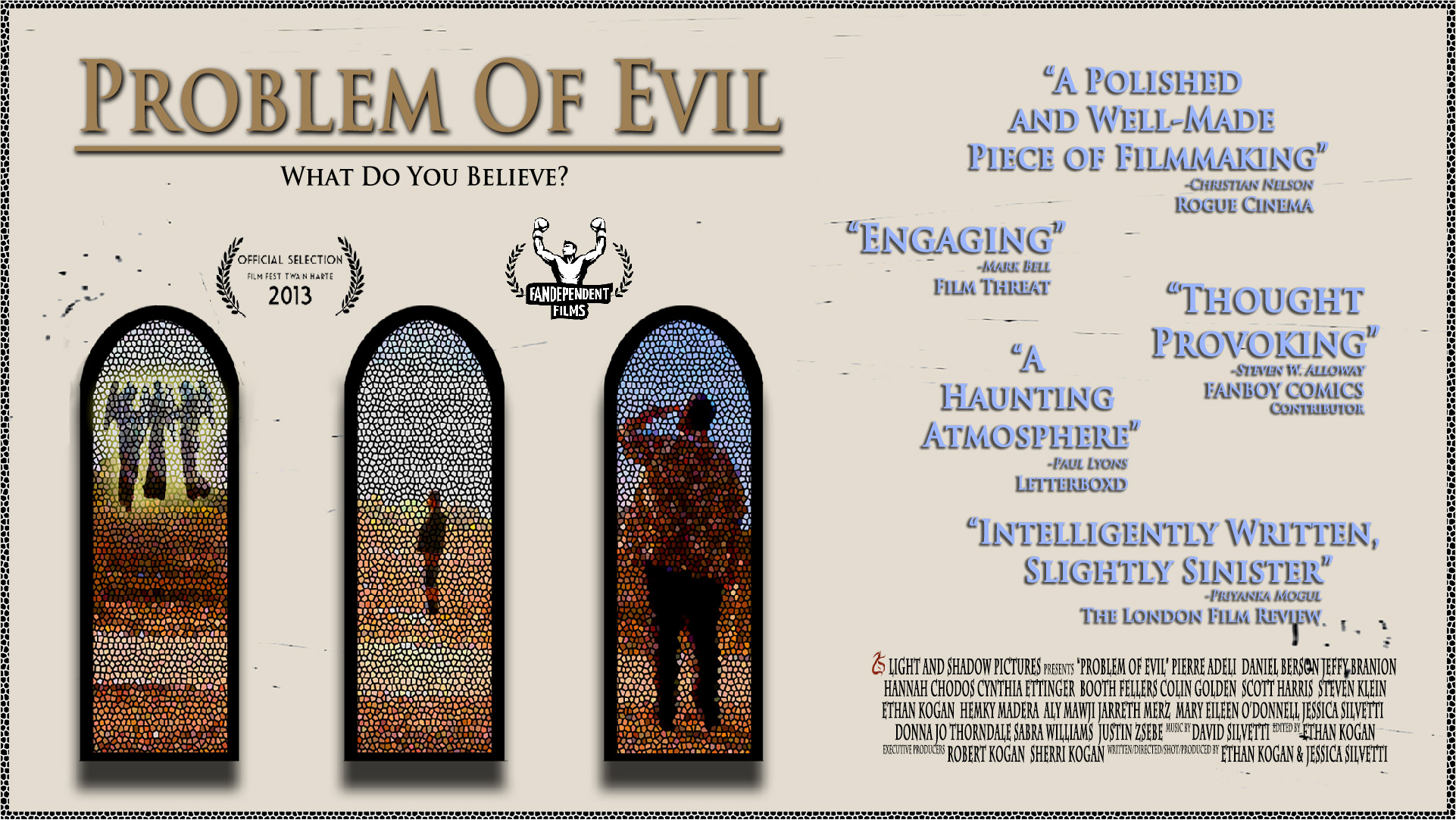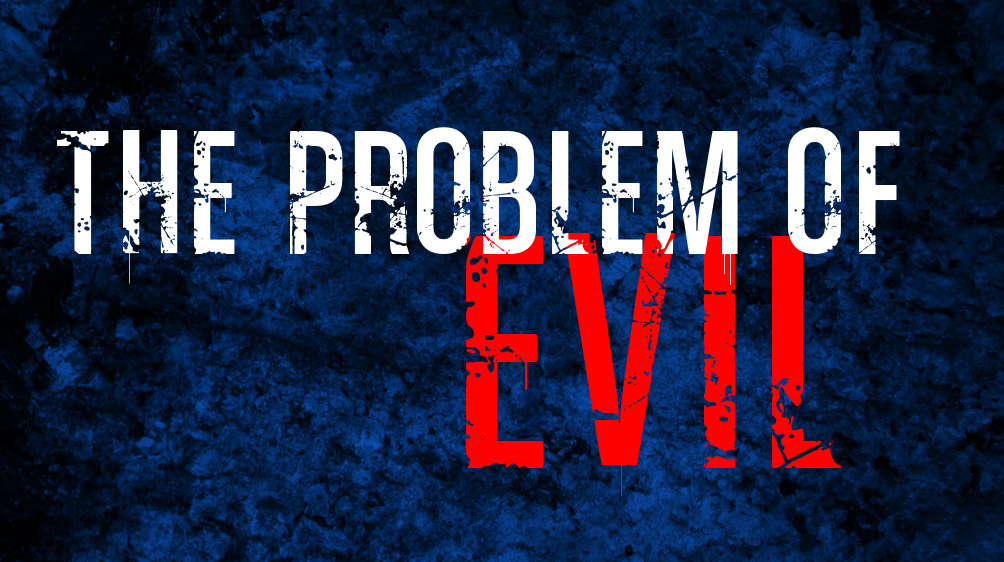The problem of how a good and powerful God could allow evil and suffering in His creation is discussed, both from a philosophical and religious perspective. The problem of evil, many theists say, concerns not the lack of perfect goodness in the world, but only the presence of real badness (positive bad states). The theist can admit that the world could be better in many ways. God, for the theist, is the source of Christianity has an answer the only answer, in fact to the problem of evil, but it is not a glib answer nor an easy answer. Here is the problem: We believe that God is all powerful and allgood. The problem of evil is not an abstract problem for the Christian God. Our God doesnt ride above the fray, untouched by our fears and tears. The book Calvinism and the Problem of Evil, edited by David Alexander and Daniel Johnson, and to which I contributed the essay Calvinism and the First Sin, has finally been published. For some reason the table of contents isnt provided on the publishers website, so here it is: Introduction (David E. Johnson) The problem of evil is one of the strongest arguments against the existence of an allpowerful, allknowing and allgood god. There are simply too many horrors in the world to permit the existence of anall loving god that sees all these horrors and allows them. Opinionated guide to the last 10, especially last five years of work on the problem of evil. problem posed by second order evil. In general, a solution of this kind seems to require some level n such that there are nth level goods, there are not nth level evils, and the. The epistemic question posed by evil is whether the world contains undesirable states of affairs that provide the basis for an argument that makes it unreasonable to believe in the existence of God. The problem of evil is that it makes you suffer. Nobody likes to suffer and everyone likes to enjoy. So the more good you are the more you'll enjoy and the more evil you are the more you'll suffer. It is generally supposed that the fact that the world contains a vast amount of suffering, much of it truly horrible suffering, confronts those who believe in an allpowerful and benevolent Creator with a serious problem: to explain why such a Creator would permit this. Many reflective people are convinced that the problem, the problem of evil, is insoluble. The evidential problem of evil claims that the amount and distribution of evil that exists is good evidence that an omnipotent, good God does not exist. It understands the The Problem of Evil Millard Ericksons presentation of the problem of evil and proposed solutions are the stuff my seminary dreams are made of! The problem of evil is so obvious in the world. The problem of evil is the problem of accounting for evil in a world created by an allpowerful, allknowing, allgood God. It seems that if the creator has these attributes, there would be no evil in the world. But there is evil in the world. , Clendinnen 1999, ; Cole 2006). The concept of evil would have explanatory power, or. The problem of evil is most often posed as an argument like this one: I f God is perfectly good, then He must want to prevent evil. If God is allpowerful, then He can prevent evil. The Incompatibility Problem of Evil According to Incompatibility or Logical versions of the Problem of Evil, E is logically incompatible with Gods existence (Mackie 1955). That means that believing in E and believing in God is like believing in a fivesided square. The argument from evil (or problem of evil) is the argument that an allpowerful, allknowing, and perfectly good God would not allow anyor certain kinds ofevil or suffering to occur. Unlike the logical argument from evil, which holds that the existence of God (so defined) is logically. The problem of evil is one of the most discussed topics in the philosophy of religion. For some time, however, there has been a need for a collection of readings that adequately represents recent and ongoing writing on the topic. This volume fills that need, offering the most uptodate collection of recent scholarship on the problem of evil. John and Ken discuss the problem of evil with their guest, Michael Tooley from the University of Colorado at Boulder, coauthor of Knowledge of God. Listening Notes John and Ken start by elucidating why evil is a problem not just for us, but for God. The most weighty of the arguments against Gods existence is the problem of evil. Of all the atheistic arguments, this is the one that has been around for longest, that has had the most words written about it, and that draws the most diverse responses from Christians. The Problem of Evil is not a single problem, but rather a family of arguments for the nonexistence of God. In its least ambitious form, the argument cites the evil and suffering we find in the world as compelling evidence that the world is not under the control of an omnipotent Deity, while. Problem Of Evil has 43 ratings and 4 reviews. Patrick said: Good introduction to the Problem of Evil as set forth in contemporary philosophy. I originall The problem of evil (or argument from evil) is the problem of reconciling the existence of the evil in the world with the existence of an omniscient (allknowing), omnipotent (allpowerful) and perfectly good God. In atheism, Hinduism, and Buddhism there is no clear basis to call anything evil, and that is an immense problem, particularly because we inherently know better. Chesterton said, People reject the idea of original sin when it is the After weeks of exploring the existence of nature of god, today Hank explores one of the biggest problems in theism, and possibly the biggest philosophical question humanity faces: why is there evil. Chapter 3: Philosophy of Religion. Proofs for the Existence of God. There is an argument that is advanced in order to prove that either there is no god at all or that the god of the western religions can not exist. The logical problem of evil claims that God's omnipotence, omniscience and supreme goodness would completely rule out the possibility of evil and that the existence of evil would do the same for the existence of a supreme being. The problem of evil has perplexed theologians for centuries. What are three common solutions? This article explores three common solutions to the problem of evil. THE PROBLEM OF EVIL LECTURE NOTES JOBS DEALING WITH EVIL I. Introduction Lets see what God teaches us about evil thru the life of Job What is the biblical solution to the problem of evil? If God is all powerful and could stop evil, and at the same time all good and wants to stop evil, why does He still allow evil. The Problem of Evil The problem of evil is the notion that, how can an allgood, allpowerful, allloving God exists when evil seems to exist also. The 'problem of evil' is a subject of perennial interest tophilosophers of religion and theologians, but research has barelyscratched the surface of the complex. Evil, in a general sense, is the opposite or absence of good. It can be an extremely broad concept, though in everyday usage is often used more narrowly to denote profound wickedness. The Problem of Evil: Slavery, Freedom, and the Ambiguities of American Reform. University of Massachusetts Press. The Problem of Evil and millions of other books are available for Amazon Kindle. Learn more Enter your mobile number or email address below and we'll send you a link to download the free Kindle App. Her books include her major study Aquinas (Routledge, 2003), her extensive treatment of the problem of evil, Wandering in Darkness: Narrative and the Problem of Suffering (Oxford, 2010), and her farreaching examination of human redemption, Atonement (Oxford, 2018). ) discusses a classic argument that God does not exist, called 'The Problem of Evil Along the way, she distinguishes different ways. The problem of evil is a problem for everyone. If God exists, we have to explain why evil is here. But if God does not exist, we have to explain why we find evil objectionable. The problem of evil (also argument from evil, POE) attempts to prove that the existence of evil contradicts the existence of an omnipotent and omnibenevolent (OO) entity, such as the Abrahamic God. The problem of evil has two branches. The logical problem of evil (LPOE) attempts to prove that the existence of any evil contradicts the existence of an omnipotent and omnibenevolent entity. For many people, the problem of evil is not really an intellectual problem: it is an emotional problem. They are hurting inside and perhaps bitter against a God who would permit them or others to suffer so. Problem of evil: Problem of evil, the problem of reconciling the existence of evil with the supposed omnipotence and perfect goodness of God. The problem of evil is a highly topical subject within all world religions, and Hinduism in particular offers an interesting account for the existence of evil. So far, we have examined only arguments for the existence of God. But for each argument, we have also discussed some objections. The problem of how a good and powerful God could allow evil and suffering in His creation is discussed, both from a philosophical and religious perspective. 1 THE PROBLEM OF EVIL Brian Watson Introduction Evil is a problem for everyone. No matter which religion one believes or which worldview one holds, the presence of evil in the world creates a logical and existential quandary The problem of evil is the question whether evil exists, and if so does it disprove the existence of God. Certain religions say there is a god who is allloving, allknowing and allpowerful. In these religions, the question to answer is how an allloving and allpowerful god could allow evil to exist. The information philosophy solution to the problem if evil is a dualist world with both entropic destruction and ergodic creation. If ergodic information is an objective good, then entropic destruction of information is the devil incarnate, as Norbert Wiener put it. The Problem of Evil in God's Universe The existence of evil is denied or ignored by some, considered the greatest problem in philosophy by others, engaged as a battle unto death by others. Problem Of Evil Philosophical challenge to the existence of a loving God. True love requires the capacity for real evil. The problem of evil is one of the most discussed topics in the philosophy of religion. For some time, however, there has been a need for a collection of readings that adequately represents recent and ongoing writing on the topic. This volume fills that need, offering the most uptodate collection of recent scholarship on the problem of evil..











